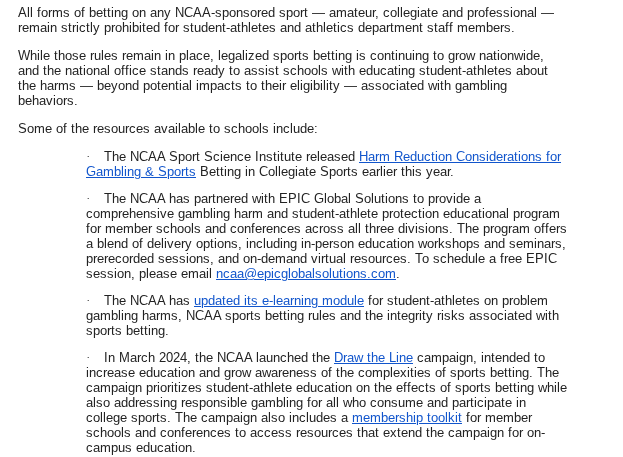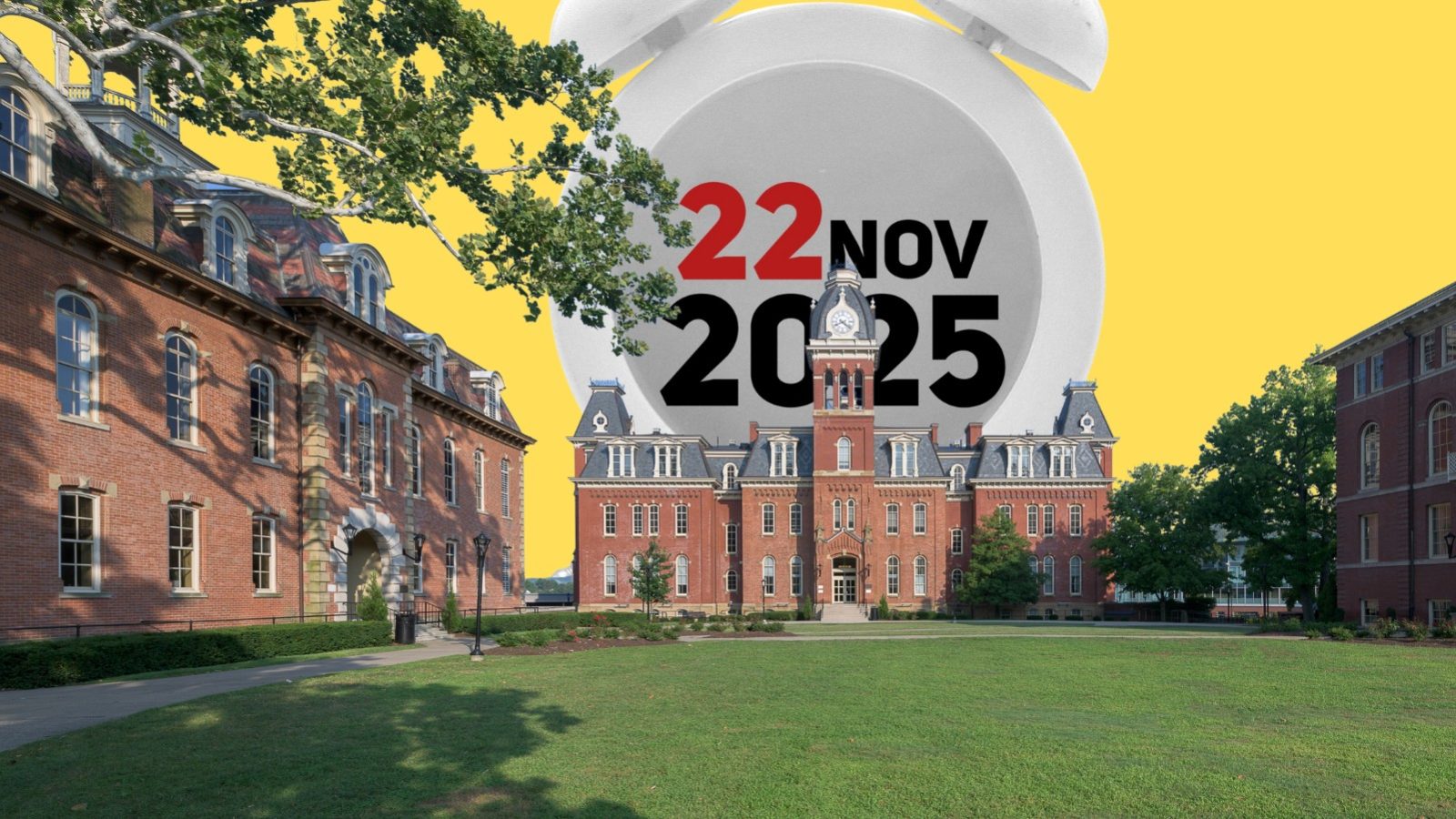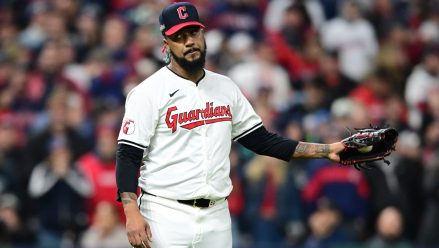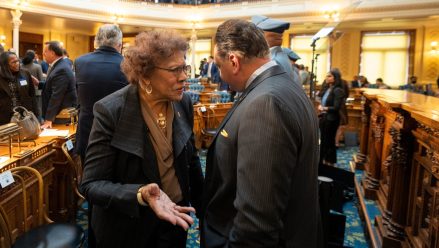The contentious National Collegiate Athletic Association (NCAA) rule that would have allowed student-athletes and staffers to wager on professional sports was overturned on Friday in the so-called “rescission” period, meaning the previous ban on pro sports wagering will be reinstated. The NCAA released a statement announcing the news.
At least two thirds of Division I schools submitted paperwork to undo the rule change, which was approved in October by the NCAA’s Division I, II, and III boards of directors and originally slated to commence on Nov. 1. Member institutions had until 5 p.m. Friday to do so.
Student-athletes and staffers have been barred from any sports gambling since the NCAA codified a policy in 2023.
The proposed change — which would have allowed bets on pro sports while continuing to ban bets on collegiate sports — was lambasted by academics, high-profile coaches and athletic directors like Southeastern Conference head Greg Sankey, who in an open letter to the NCAA wrote: “If there are legal or practical concerns about the prior policy, those should be addressed through careful refinement — not through wholesale removal of the guardrails that have long supported the integrity of games and the well-being of those who participate.”

30-day window eventually yielded rebuke
Two-thirds of the Division I membership, or 241 schools, were needed to block the rule from coming into effect. According to CNN, just 188 Division I schools had filed paperwork to reverse the rule by Thursday night.
The NCAA did not report the final total opposed.
Per NCAA rules, if Division I institutions vote to rescind a rule within 30 days, it will not take effect in any division.
Joshua Shuart, a sports management professor at Sacred Heart University, said that the proposed rule change was “an absolute gateway to disaster,” considering the responsible gambling implications for an age demographic already under stress as athletes. There were also concerns about the intentional or accidental possibility of running afoul of insider information-sharing rules that still exist.
Dr. Jared Pincin, an economics professor at Cedarville University, who has co-authored papers on gambling ethics and economic impacts, told InGame: “None of us make great decisions when we’re 18, 19, 20, compared to when we’re 30, 40, 50. And so I think it’s just a dangerous mix that we have here.”






